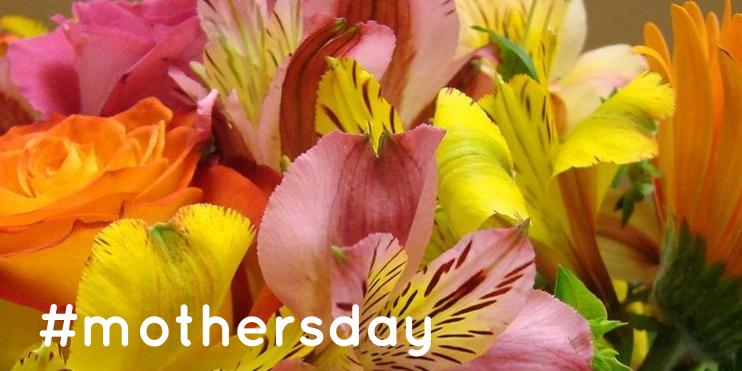Today marks the start of National Fertility Awareness Week. In the few years that this has been on my radar, I’ve often accompanied this announcement with a jingle or dance so please just imagine I am shimmying around as you read this.
This year feels different for me. I could put it down to being a post-fertility treatment parent and therefore this week isn’t for me. Actually, I think that more than ever, this week is for me and it has had me pondering.
Who exactly is this week for?
This week is a reminder that our people, our sisters, our brothers, friends, work mates, members of our communities are the 1 in 6.
You see, anyone who has experienced fertility issues is acutely aware of this. At times it will be all consuming. It fills their minds as they calculate ovulation dates, schedule a romantic rendez-vous with their partners to inject another hormone in their buttocks, book another doctor’s appointment whilst trying to maintain some privacy at work, wait anxiously for the doctor to give them the results of the latest tests, questioned their masculinity because they can’t give their partner the baby she desperately wants, sobbed into their pillows as yet another friend is pregnant and they so desperately want to be happy for them but they are overwhelmingly sad for themselves right now.
Yeah, they are acutely aware of their fertility.
This week is definitely for them. A week where we find out that we are not alone. That 1 in 6 couples experience fertility difficulties. That your colleague who works in the other department also cried in the toilets after the last birth announcement, that what you feel is ok, the grief you carry is uniquely yours but understood by others with their own burdens. This week is a reminder that our people, our sisters, our brothers, friends, work mates, members of our communities are the 1 in 6.
My university days are a rose-tinted memory for me and mainly because I made five wonderful friends. We are family to each other. And I am the 1 in 6 from that group. I am a living statistic.
This week is also for the 5 in 6. The ones who haven’t experienced fertility issues when trying to conceive. This is their chance to show that they are aware that they were the lucky ones. That struggling is more common than we realise. It is a chance to practice empathy. My five friends from uni sat with me one weekend when I felt hopeless and let me talk. Without cutting me off. Without giving me a ton of advice I hadn’t sought. It didn’t change my situation but it helped. I felt listened to. That made a difference to me.
So, who needs to be listened to in your life? And by listened to, I mean REALLY listened to. Hear what they are saying. Imagine being in that place. Sit with them as they share the hard stuff with you. It is a privileged place. Show them your awareness by not dishing out advice. By allowing the silences. By ignoring your discomfort when the tears roll and you don’t know what to do. There are no easy answers to fertility struggles. It is rarely straightforward. But simply listening can make a difference.
This week is a chance for us all to be more aware. To open our eyes and ears to see and hear the stories which surround us. I read somewhere that in this era of social media and oversharing, it is surprising that fertility struggles are still seen as a taboo. Wouldn’t it be wonderful if we could break that taboo? One of the focuses of NFAW is #HiddenFaces. People are sharing their stories, breaking the taboo, stepping out to show what fertility struggles look like for them.
For Elis and I, breaking the taboo began early on. Male infertility is not uncommon (a third of fertility issues are caused by male fertility) but it is seldom talked about. We had no choice but to talk about it as it lead to anxiety, depression and time off work for Elis. It was the biggest shock we’d ever had and it took us years to be comfortable sharing our whole story. The reason we do continue to talk about our journey to parenthood, to becoming parents through donor conception, is because we didn’t know anyone who had experienced this. We had never heard of azoospermia before Elis was diagnosed with it. No one talks about these things. And if no one shares then you will always feel alone. You will think you are the only ones.
Let this week be a week of knowing that we are not alone. Our grief is ok. Our stories count.




Thank you for this post, it will be helpful to share this on Facebook. If I’m honest, my husband and I both feel sad that this week has been re-branded ‘Fertility Awareness Week’. When I saw the title of this blogpost, I wondered if that was what you were referring to! I am 100% infertile, having had both ovaries removed due to cancer, and ‘owning’ the word infertility is somehow really important to me. It feels a bit as though the word ‘infertility’ is too powerful even to be invoked in an awareness raising week. Sorry for off-topic rambling, this was just what came to mind! Thank you for another powerful post! Cat
Hi Cat, I was quite surprised by the re-branding too. I think infertility is still seen as a label that everyone wants to avoid so trying to spin it around can help. I’m not sure if it does or not. One of the myths the NFAW is trying to debunk is that coming to terms with childlessness is a straight forward thing to do. So, ‘owning’ your story is incredibly important. Thanks so much for your continued support. Sending you big hugs this week in particular xx